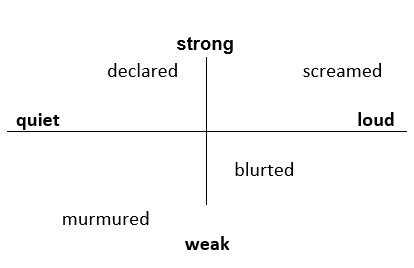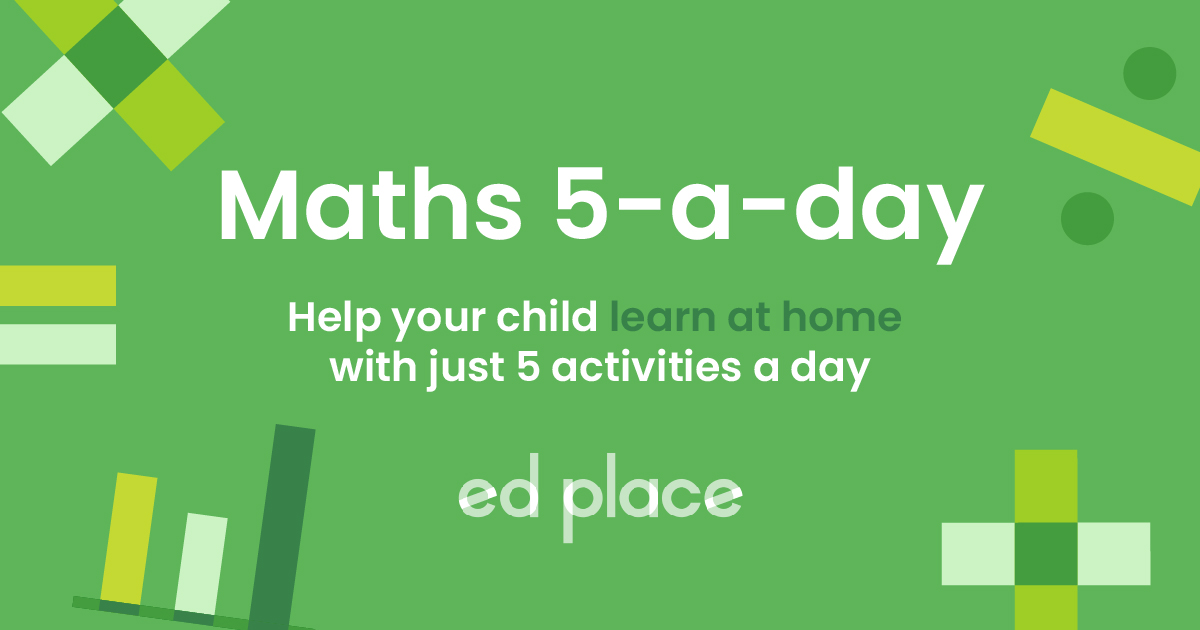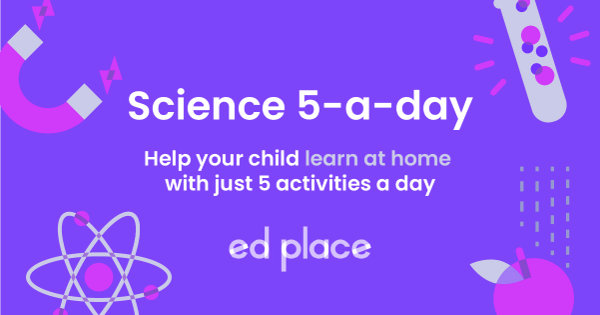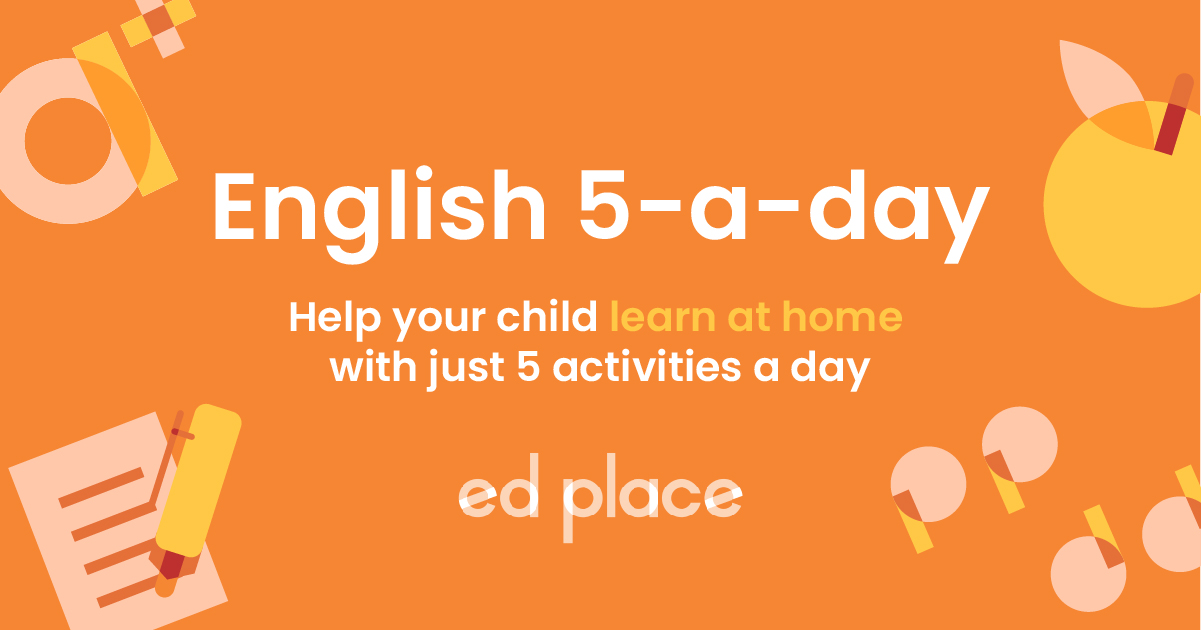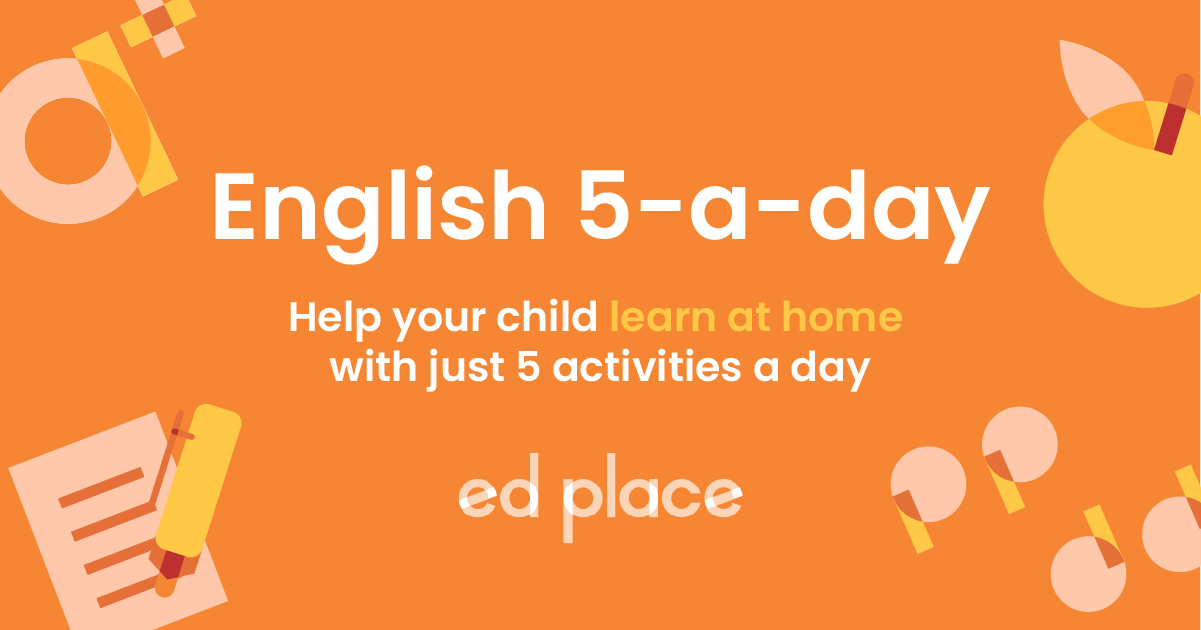
EdPlace's Year 8 Home Learning English Language Lesson: Develop Vocabulary for Creative Writing
Looking for short lessons to keep your child engaged and learning? Our experienced team of teachers have created English, maths and science lessons for the home, so your child can learn no matter where they are. And, as all activities are self-marked, you really can encourage your child to be an independent learner.
Get them started on the lesson below and then jump into our teacher-created activities to practice what they've learnt. We've recommended five to ensure they feel secure in their knowledge - 5-a-day helps keeps the learning loss at bay (or so we think!).
Are they keen to start practising straight away? Head to the bottom of the page to find the activities.
Now...onto the lesson!
Why Does Your Child Need to Develop their Vocabulary?
In trying to improve our writing, we often focus on SPAG– the correct use of spelling, punctuation and grammar. These are important, and there is the comfort of having some right or wrong answers to check! However, really good writing has something else- the X Factor. We also have to add creativity and imagination, which may feel unreachable at times, and especially on demand…
What we can do is make our writing more descriptive and interesting by developing our vocabulary and borrowing some techniques from the professionals.
In this guide, we will focus on improving and developing your child's vocabulary, especially for creative or descriptive writing. Of course, reading and writing go hand in hand, so through reading, we can improve your child's vocabulary which also means that they can understand more demanding texts, and build up our skills and confidence. We will also think about planning ahead; how a little imagination – and some well-chosen words - can form the basis of some stock characters or settings, which can be stored away for the next writing task. Finally, we will flag up how important it is to be aware of the way vocabulary changes with different genres, and that by noticing the kind of language used, creative writing can seem more authentic and fitting to the style.
We’re confident that by the end of this guide your child will be able to:
1) Choose effective verbs and adjectives to improve the impact of their writing
2) Create their own similes and, with a little imagination...
3) Develop their own characters, ready-made for an adventure to follow!
Step 1: Key Terminology
Before you both get to grips with the lesson, ensure your child feels confident with the following key terms:
Verb: action words e.g. run, keep, feel.
Adverb: words that describe an action e.g. quickly, lovingly, menacingly.
Adjective: a word that describes a noun e.g. red, charming, huge
Synonym: a word or phrase that means exactly or nearly the same as another word e.g. angry and provoked.
Similes: a figure of speech involving the comparison of one thing with another thing of a different kind e.g. 'She is as smart as Einstein'.
Genre: a style or category of art, music, or literature e.g. Gothic.
Character: a person in a novel, play, or film.
Step 2: Word Choice - Add Flair to Your Writing!
In creative writing, characters will need to convey what they see, what they say and what they do. Expanding the range of verbs used can easily add impact and make a great impression too.
Consider this sentence:
Frank walked into the room, looked at his watch and said, ‘I’m late.’
… and now, why not try tweaking the choice of verbs in order to add tension and pace?
Frank flew into the room, glanced at his watch and exclaimed, ‘I’m late!’
Taking ‘walk’ as an example, why not make a poster for as many synonyms as you can find? To add to the challenge, arrange them on a spectrum like this:
Slow -------------------------------------------------- Fast
Here are some to start with, how many more can you think of, and where would you place them along the line? stroll, march, bounce, plod, stomp, trample, wander, pound. In addition, you can couple a well-chosen verb with an interesting adverb. That means that a man may stroll purposefully, or aimlessly. The adverb is modifying the verb to give us a more precise description of the action.
Add Adjectives
Adjectives modify a noun; that is, they add detail to describe it. They are a great way to make your descriptions come alive because they help the reader to imagine exactly what you want them to. Start by developing a list of adjectives that could easily make characters and places come to life. Consider these descriptions:
The man
The slim man
The skinny man
Which one suggests that the man is healthy and takes care of himself? Which one suggests neglect? Of course, we would need more information to make a judgement, but the choice of adjective may lead us more towards one impression, so as writers we should handle words with care. Notice if the adjectives feel positive or negative in mood, then think how the writer is guiding our opinion by their vocabulary choice. Remember, we can also use adjectives to describe a character’s personality, so we should build up a word bank that includes characteristics too, such as ‘brave’ or ‘timid’.
Incorporate Similes
These are another way to improve descriptive writing and to help the reader relate to what you are saying. We compare the subject to something we commonly know. For example, ‘as cold as ice’ or ‘as light as a feather’ are used in everyday speech or even song lyrics. As soon as you hear ‘like…’ or ‘as… as…’ then there’s a good chance it’s a simile. Including one or two well-chosen similes will improve your writing and they are fun to think of too!
Step 3: Prepare a Character or Scene
One great way to prepare yourself for writing is to have some characters and scenes already ‘in stock’. That means having a mental picture of them ready to put into a piece of writing, modifying them to the specific task. Just going through this creative process in some detail, when there is no pressure, will make it quicker for future tasks! Create a ‘pen picture’ for each one. That means choosing your adjectives with care, and perhaps including some similes which describe their characteristics too.
Suggested characters:
A teenage girl
A teenage boy
A parent
A favourite relative
An enemy
A person in authority
A friend
An other...
Suggested places:
A favourite room
An outdoor place – park, beach, forest
A town or city
A school
A scary place
Lastly, but by no means least, read as much as you can. Try to notice that writers use a different word bank of vocabulary for different genres too.
Step 4: Exercises to Expand Your Child's Vocabulary
1) Ask your child to make spectrum charts for the words 'said' and 'looked'. Use the following list of synonyms to help you get started, but, do add your own favourites: glimpsed, replied, stared, gazed, muttered, watched, examined, challenged, scanned, observed, denied. For an extra challenge, add an extra dimension! As well as putting them on a horizontal 'slow – fast' scale, add a vertical 'strong-weak’ scale. Here, your child can think about how the actions convey emotions too.
2) This time, make lists of interesting adjectives under the headings of ‘Positive’ and ‘Negative’. Where would you put the following? calm erratic anxious curious tidy.
3) Challenge your child by asking them to think of their own similes. For example:
As brave as…
As strong as…
As easy as…
As clear as…
I slept like…
As dry as…
4) Ask your child to match the style to each genre in the table below (they are muddled). Which words suggest the type of story each quote belongs to?
| ‘Where’s your officer? The suspect is getting away.’ (Wendy Kendall) | Science Fiction |
| ‘I know not all that may be coming, but be it what it will, I’ll go to it laughing.’ (Herman Melville) | Fantasy |
| ‘If you see the dragon fly, best you drink the flagon dry.’ (Greg Hamerton) | War / Action |
| ‘Those who believe in telekinetics, raise my hand.’ (Kurt Vonnegut) | Adventure |
| ‘Advance!’ Another cheer on Jason’s right as Percy and Annabeth reunited with the forces of Camp Half-Blood. (Rick Riordan) | Mystery / Crime |
Step 5: EdPlace Activities
The following activities will build knowledge of informal and formal writing, further ensuring your child has a headstart at the topic.
All activities are created by teachers and automatically marked. Plus, with an EdPlace subscription, we can automatically progress your child at a level that's right for them. Sending you progress reports along the way so you can track and measure progress, together - brilliant!
Activity 1 - Synonyms: Varying Your Word Choice 1
Activity 2 - Synonyms: Varying Your Word Choice 2
Activity 3 - Practice Descriptive Writing Techniques
Activity 4 - Writing a Short Story: The Lesson
Activity 5 - Write About an Experience: The Day Trip
Answers:
1) How did you get on? Here is a sample for the verb ‘said’:
This time the scale goes from quiet to loud, but you can also add to the mood by showing strong or weak feelings:
2) Suggested responses, perhaps your child was more original though?
As brave as… a lion.
As strong as… an ox.
As easy as… A,B,C.
As clear as… glass/mud.
I slept like…a baby.
As dry as…the desert.
3) Which genre-specific words did you both manage to identify?
| ‘Where’s your officer? The suspect is getting away.’ (Wendy Kendall) | Mystery / Crime |
| ‘I know not all that may be coming, but be it what it will, I’ll go to it laughing.’ (Herman Melville) | Adventure (Ticky? Nore the future tense used, suggesting that unknown adventures lie ahead..._ |
| ‘If you see the dragon fly, best you drink the flagon dry.’ (Greg Hamerton) | Fantasy |
| ‘Those who believe in telekinetics, raise my hand.’ (Kurt Vonnegut) | Science Fiction |
| ‘Advance!’ Another cheer on Jason’s right as Percy and Annabeth reunited with the forces of Camp Half-Blood. (Rick Riordan) | War / Action |

